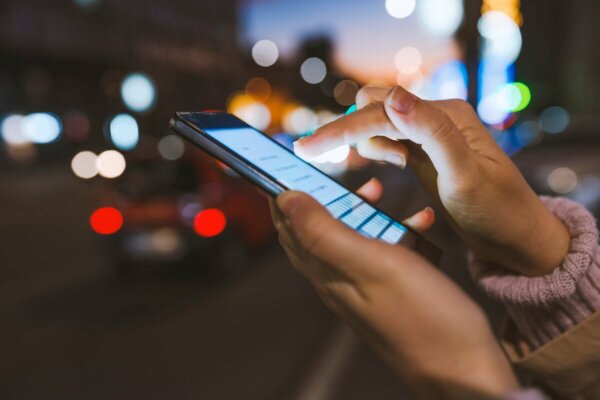Digital Autobiography - Your Cell Phone Knows You Better


Written and verified by the psychologist Valeria Sabater
Your digital autobiography allows your cell phone to know you nearly as well as you know yourself. Although you may not realize it, this device is an extension of your own person and could probably tell you things about yourself that would make you blush. It creates a story about your life with every interaction you have, everything you “like”, every photo you post, and every conversation you have day after day.
Your reality changes when you sign up for an app, even if you’re not aware of it. Everything you are and do will become a part of fine-tuned algorithms with a single purpose: to profit from you.
Modern technology captures everyday life and processes in highly sophisticated ways. There are people who constantly read you, watch you, and analyze you in order to draw conclusions about who you are.
No, this isn’t the plot of a horror movie, it’s the current reality.

Digital autobiography – how cell phones collect information about people
A parallel, invisible dimension opens up before you as soon as you buy a cell phone and log on to Google. Although you don’t perceive it nor notice it, there’s an army of “spies” recording everything you do from that moment on. In fact, you’ve given them permission to do so in exchange for using their application. You hand out your private data by accepting their camouflaged surveillance and subsequent data handling.
Studies, such as one conducted at the Computer Science Department at the University of Southampton, point out that the existing privacy guidelines and approaches in these contracts are inadequate and incomplete. This is because they withhold a lot of information.
The downside to this is that there are increasingly more apps aimed at capturing your data and you can no longer live without these resources.
Lifelogging – the vital data collection mechanism
The recording of data by your devices about your daily vital activities is a meticulous, continuous, and highly sophisticated process. It seeks to record everything you do (and even what you don’t do). Digital spies are constantly getting data through every application out there and work 24/7.
- As we mentioned above, apps are the order of the day, and all of them outline your digital autobiography. How do they do it?
- Think about smartwatches and how they record your movements and lifestyle. They know how many hours you sleep, your nutrition habits, your heart rate, the state of your heart, and even the messages you send.
- There are even apps that help women record their menstrual periods and know their best days to conceive.
- Other apps track your moods and give you advice on how to feel better. Also, some of them serve as a personal diary and help you with your shopping lists and remind you of medical appointments.
- Then, there’s the GPS tracking of your cell phone that records every place you’ve been.
- Google also stores your photos. In fact, most cell phones have factory programs you can’t delete and that automatically save your personal ones.
Social networks and digital autobiography
Mobile apps are the most voracious capturers of daily personal data or lifelogging. However, the absolute queens of data marketing: social networks. For example, Facebook regularly reminds you of certain moments from your past through publications you made in previous years.
All your experiences, interactions, shared information, or published thoughts become a part of the databases of big companies like Instagram, Twitter, and any other social network. Every photo you upload or data you published is captured, recorded in a few milliseconds, and stored in large data centers, hidden in the most unsuspected places on the planet.
There’s also another “interesting” factor to say the least. A digital autobiography will linger even after you die. Actually, companies like Microsoft already created a chatbot capable of recreating the life of a deceased person based on their social media posts.

The risks of storing all personal data
Those Facebook reminders about what you did two or eight years ago awaken a positive emotion for the most part. It’s also true that most of us no longer conceive daily life without these auxiliary resources. Cell phones are now extensions of who we are and certainly make life easier, more productive, and even happier.
However, all these benefits have a price, and a dark side. For one, most of that digital autobiography is never really yours. You’re a mere commodity. An artificial intelligence that studies you and even tries to predict your behavior for profit is behind it.
Finally, your private data is exposed. In fact, the theft of private data to blackmail or the creation of smear policies are common occurrences. Society is facing a highly complex reality that’s neither legislated nor regulated as of yet. Meanwhile, everyone will continue to be a part of this “Matrix”.
All cited sources were thoroughly reviewed by our team to ensure their quality, reliability, currency, and validity. The bibliography of this article was considered reliable and of academic or scientific accuracy.
- Ferdous, Md. Sadek & Chowdhury, Soumyadeb & Jose, Joemon. (2017). Analysing Privacy in Visual Lifelogging. Pervasive and Mobile Computing. 40. 10.1016/j.pmcj.2017.03.003.
This text is provided for informational purposes only and does not replace consultation with a professional. If in doubt, consult your specialist.








